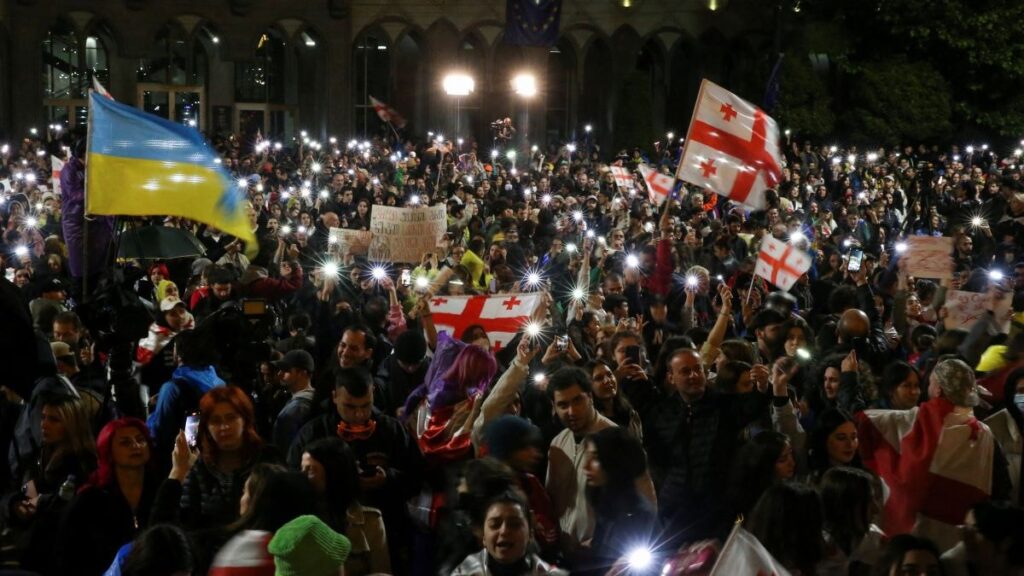Demonstrators rally near the Georgian parliament building in the Georgian capital, Tbilisi, to protest against the “foreign agents” bill. Reuters file
Georgian lawmakers were poised on Tuesday to override a presidential veto and pass a controversial “foreign influence” bill that opponents say would impose draconian restrictions on foreign-funded NGOs and block the country's path to European Union membership.
The bill, which sparked weeks of mass protests, classifies NGOs and media that receive at least a fifth of their funding from overseas as “organizations that pursue the interests of foreign powers.”
The proposal has drawn strong backlash from Western governments, including the United States, and has been compared to similar laws used in Russia to stifle dissent.
Parliament announced it would vote in a plenary session on Tuesday on whether to override a veto of the law by pro-EU President Salome Zourabichvili and allow the law to come into force.
Parliament Speaker Shalva Papuashvili vowed that lawmakers from the ruling Georgian Dream party, which holds an overwhelming majority in parliament, “will definitely overcome the veto.”
The ruling party says the proposal aims to ensure “transparency” and argues foreign-funded entities are undermining Georgia's sovereignty.
But rights groups and Western governments have warned that the move could further escalate tensions in the deeply divided Caucasus country.
Non-governmental organisations, including anti-corruption group Transparency International, told AFP that if the bill passes, their assets could be frozen and their activities restricted.
Protesters began gathering near parliament on Tuesday morning, many of them carrying Georgian and European flags.
Protests have already been ongoing in Tbilisi since Georgian Dream resurfaced the law in early April, with new rallies planned for the evening.
The track “derailed”
Tensions are also expected to rise inside Parliament House, where scuffles and fistfights have broken out at least twice between government and opposition lawmakers.
EU Foreign Minister Josep Borrell warned on Monday that the law showed Georgia's government was “off the European track” and said EU foreign ministers would consider what to do next.
President Zurabishvili, a fierce critic of the ruling party, has called on opposition parties to form a united front ahead of parliamentary elections in October.
The ruling party introduced the bill last month, reviving an earlier bill that was scrapped in March 2023 after weeks of angry protests.
The bill was passed by parliament two weeks ago but vetoed by President Zurabishvili a few days later, on May 18.
The United States last week imposed visa restrictions on officials responsible for reinstating the law and announced it was reviewing its relations with Tbilisi.
Since the government announced the bill, activists, independent journalists and opposition politicians have faced violence and intimidation in the weeks since, in what rights groups have called a targeted campaign.
Opposition politicians have accused the government of trying to appease the Kremlin, a charge it denies.
Find us on YouTube
subscribe

